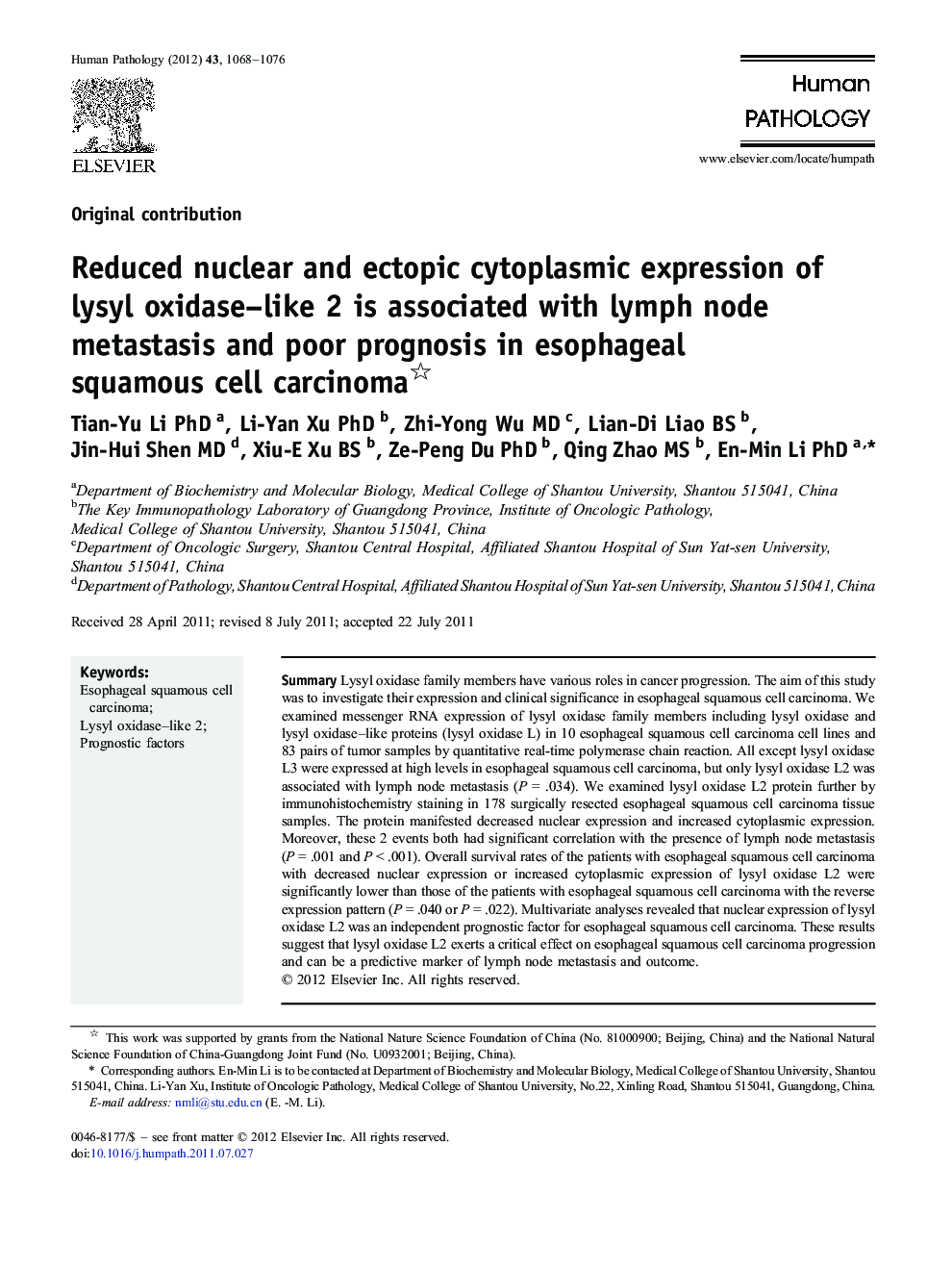| Article ID | Journal | Published Year | Pages | File Type |
|---|---|---|---|---|
| 4133491 | Human Pathology | 2012 | 9 Pages |
SummaryLysyl oxidase family members have various roles in cancer progression. The aim of this study was to investigate their expression and clinical significance in esophageal squamous cell carcinoma. We examined messenger RNA expression of lysyl oxidase family members including lysyl oxidase and lysyl oxidase–like proteins (lysyl oxidase L) in 10 esophageal squamous cell carcinoma cell lines and 83 pairs of tumor samples by quantitative real-time polymerase chain reaction. All except lysyl oxidase L3 were expressed at high levels in esophageal squamous cell carcinoma, but only lysyl oxidase L2 was associated with lymph node metastasis (P = .034). We examined lysyl oxidase L2 protein further by immunohistochemistry staining in 178 surgically resected esophageal squamous cell carcinoma tissue samples. The protein manifested decreased nuclear expression and increased cytoplasmic expression. Moreover, these 2 events both had significant correlation with the presence of lymph node metastasis (P = .001 and P < .001). Overall survival rates of the patients with esophageal squamous cell carcinoma with decreased nuclear expression or increased cytoplasmic expression of lysyl oxidase L2 were significantly lower than those of the patients with esophageal squamous cell carcinoma with the reverse expression pattern (P = .040 or P = .022). Multivariate analyses revealed that nuclear expression of lysyl oxidase L2 was an independent prognostic factor for esophageal squamous cell carcinoma. These results suggest that lysyl oxidase L2 exerts a critical effect on esophageal squamous cell carcinoma progression and can be a predictive marker of lymph node metastasis and outcome.
